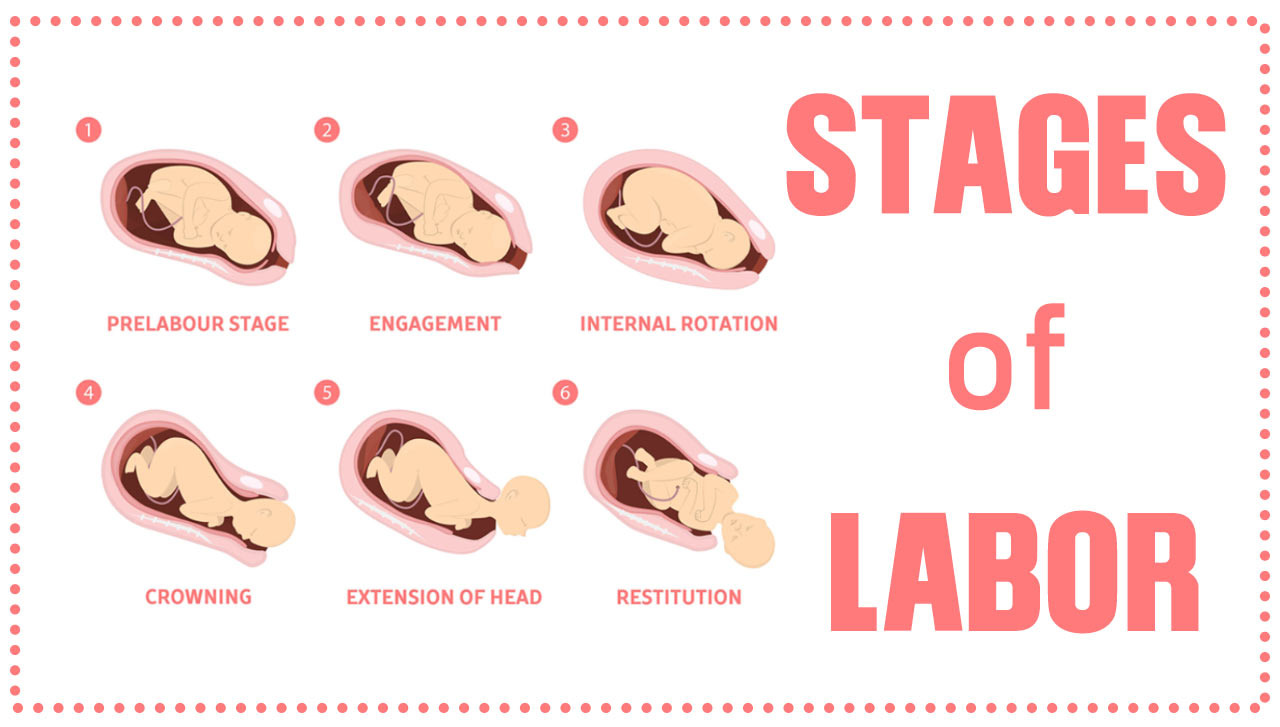Do you get cramp aches but no period?
Although it is unsettling to have pelvic pain and discomfort outside of your menstrual cycle, the underlying cause may not be as serious as you suspect.
Cramps are typical period-related aches, but it is not unusual for you to have cramps outside of your menstrual cycle.
Outside of your menstrual cycle, there are several factors that cause cramps but no period, including stress, hormone imbalances, and even pregnancy.
Other illnesses that are unrelated to the uterus, such as gastrointestinal disorders and urinary tract infections, can also result in excruciating pelvic cramps.
It is challenging to determine whether something minor or more serious is to blame for cramps that don’t coincide with a period.
To figure out the reason for your unexplained cramps, a complete history, pelvic exam, urine pregnancy test, urine culture, STI testing, and pelvic ultrasound will be needed.
So, if you’re worried about what’s causing your cramps, make an appointment with your doctor.
A comprehensive list of 19 causes of cramp aches without a period
Here are 19 common reasons why you get cramps even if you are not on your period, along with some advice on how to identify the source of your cramps.
1. Pelvic Inflammatory Disease (PID)
An infection of the female reproductive system is PID.
It can be a complication of some STDs, such as chlamydia and gonorrhea, but it can also happen as a result of other illnesses.
In addition to stomach pains, PID symptoms can also include
- Fever
- Unpleasant discharge
- Burning while urinating
- Discomfort or bleeding during sex
- Bleeding in between periods
2. Endometriosis
One of the symptoms of endometriosis is the growth of tissue in other parts of the body that resembles the tissue that borders the uterus.
In the same way, the tissue in the uterus does in response to hormones, this tissue reacts to hormones by disintegrating and bleeding.
Endometrial tissue can develop lesions, which can hurt and swell, but it cannot escape the body through the vagina.
If you have endometriosis then you will only suffer symptoms during your period, or it could persist for the duration of your menstrual cycle.
3. Inflammatory Bowel Disease (IBD)
A chronic disorder that harms your digestive tract is inflammatory bowel disease (IBD).
Food digestion is made more difficult by IBD, which can also occasionally cause your intestines to bleed dangerously.
IBD can result in symptoms including diarrhea and bloody stools, as well as discomfort and cramping in your belly, particularly after eating.
In many circumstances, IBD might cause you to lose weight by making you feel hungrier than usual.
4. Ovulation
When an egg is released from the ovary, ovulation can result in pain, cramping, discomfort, and spotting.
In the medical community, this condition is referred to as mittelschmerz, which means usually occurs mid-cycle and describes the pain and discomfort brought on by ovulation.
Symptoms of ovulation include
- Mild, acute or dull cramping that lasts for a few minutes to hours
- On the abdomen, it usually affects just one side
5. Indigestion
Cramps in your stomach, especially in your upper belly, that began soon after or perhaps while eating comes from indigestion.
Additional symptoms include bloating, nausea, an uncomfortable feeling of being full during or shortly after a meal, heat, burning, or discomfort between the belly button and the bottom region of the breastbone, and abdominal heat.
The majority of the time, indigestion is not an indication of a significant health issue, but it would be better to slow down your eating and avoid lying down right after a substantial meal.
6. Appendicitis
A deadly disorder known as appendicitis occurs when your appendix suddenly becomes inflamed, frequently as a result of an infection.
If you don’t seek immediate medical attention to have your appendix removed after being diagnosed with appendicitis, it could burst and result in a serious illness or even death.
Symptoms of appendicitis include
- Right lower quadrant discomfort
- Loss of appetite
- Fever
Although appendix pain could first seem like a typical stomach ache, it won’t go away on its own and will only become worse until you receive treatment.
7. Ectopic pregnancy
An ectopic pregnancy occurs when a fertilized egg develops outside of the uterus, most frequently in a fallopian tube approximately 90% of the time.
As the pregnancy progresses, it leads to the tube bursting, which results in potentially fatal internal hemorrhage and necessitates emergency surgery.
The early indicators of this pregnancy, such as a missing period, sensitive breasts, and an upset GI system, make it seem and feel exactly like any other regular pregnancy.
Additionally, you could suffer pelvic discomfort, low back pain, or stomach pain, all of which make it difficult to determine if you are having an ectopic pregnancy or a regular pregnancy.
However, as the fetus grows, more severe, defining symptoms begin to appear which include
- Abrupt, intense abdominal or pelvic discomfort
- Shoulder pain
- Weakness
- Dizziness
- Fainting
You should go to the ER or your doctor right away if you have any of these symptoms.
8. Ovarian Cyst
A cyst is a fluid-filled tissue sac that is contained where the ovary is the frequent site for cyst formation.
The majority of the time, a tiny ovarian cyst does not cause any symptoms, but if the cyst ruptures, it could result in cramping or abrupt, severe pains on one side of the lower abdomen.
The lower abdomen or back could experience dull discomfort, fullness, or heaviness due to a growing cyst.
Internal bleeding could result from a cyst rupture, so get medical help if you also have a fever or are vomiting along with your cramping.
9. Fibroids
Fibroids are among the most typical pelvic masses discovered and one of the most typical reasons for women to have pelvic or gynecologic surgery.
Fibroids are essentially benign tumors of the uterus, and they can range in size from very little to quite large and produce a wide range of symptoms.
They can undoubtedly result in severe pelvic discomfort and heavy menstrual bleeding.
10. Lactose Intolerance
When the body struggles to process the natural sugar contained in milk and dairy products, it is said to have lactose intolerance.
In addition to stomach pain, lactose intolerance can result in
- Diarrhea
- Nausea
- Bloating
- Gas
After ingesting lactose, symptoms often start to show between 30 minutes and 2 hours later.
This feeling of being sick to your stomach could be similar to the cramps and bloating you get during your period, but, it should pass in a few hours.
To find trends relating to your cramps and what you recently ate, try maintaining a food journal.
By doing so, it will become clear if food intolerance is the cause.
11. Interstitial Cystitis or Painful Bladder Syndrome
This illness is brought on by persistent bladder irritation and at any time of the month, it can hurt.
Usually, symptoms worsen when the bladder is full is comparable to urinary tract infections which include
- Pelvic pain
- Pain during intercourse
- Continual urge to urinate
- Pain between the anus and vagina in women
Interstitial cystitis is often a chronic condition that is hereditary, that is diagnosed as a last resort when all other tests come back normal.
12. Miscarriage
A miscarriage occurs when a pregnancy ends before 20 weeks have passed.
Most often, you will have uncomfortable cramps in your lower pelvic region if you miscarry, which can happen up to one in five times.
Miscarriage cramps only last a short while, but they can linger for hours.
A miscarriage is accompanied by spotting or bleeding.
If you are leaking fluid and tissue from your vagina, it is another indicator of a miscarriage.
13. Urinary Tract Infection
The bladder is physiologically placed directly in front of the uterus, a urinary tract infection, or UTI can result in cramping.
A urinary tract infection can produce discomfort and cramping due to the spasms of the bladder, and this can happen whether or not a person is on their period.
UTI can turn into a life-threatening kidney infection, so visit your doctor if your symptoms are associated with UTI.
14. Ovarian Cancer
This is an uncommon source of pressure or discomfort in the pelvis or abdomen.
Ovarian cancer may not show any symptoms, but if the cancer is big, it results in
- Discomfort or pressure in the back or abdomen
- A sense of heaviness or fullness
- Abdominal swelling
- A sudden desire to pee
This specific sort of cancer develops in the ovaries, which produce your eggs.
You could confuse the ache with something else, such as gas or constipation.
However, the discomfort and pressure in your lower abdomen persist.
If you experience these symptoms for more than two weeks, see a doctor.
15. Thyroid Conditions
Your period is frequently a good indicator of how well your body is doing overall.
Monthly periods imply that this intricate hormonal balance is in good shape.
For irregular periods and pains that don’t coincide with a period, thyroid problems could be the reason when your hormones are out of balance.
Your thyroid, a little gland in your neck in the form of a butterfly, controls a number of bodily processes, including your metabolism and menstrual cycle.
Your cycles become irregular if your thyroid is out of balance.
As a result, you could go for a long time without getting your period but still have pains.
16. Uterine Polyps
Although you would think of polyps as being in your colon, the same kind of tiny benign tumors can develop in your uterus.
It is an enlargement of the uterus lining.
Even if you are not having a period, polyps in your uterus can still produce cramping and pain similar to having a period.
Your doctor will probably want to remove the polyps because they can make it more difficult to get pregnant and because there is a tiny chance that they might later turn into uterine cancer.
This is often done during a reasonably straightforward procedure called a hysteroscopy.
A doctor inserts a long tube into the uterus through the vagina during a hysteroscopy.
The scope allows the doctor to see the polyps and remove them.
17. Pelvic Floor Muscle Dysfunction
The pelvic floor muscles, which support the bladder, rectum, and uterus, experience discomfort, cramping, and other symptoms as a result of pelvic floor problems.
Due to the pelvic floor’s vulnerability during childbirth, many problems develop after childbirth.
Pelvic floor issues can cause
- Constipation
- Discomfort during sex
- Trouble managing a urine stream
- Vaginal cramps
The cramps are intense and feel like abrupt leg cramps in your lower abdomen.
You can also have persistent back and groin discomfort.
If you have these signs, consult a physician to have a urine test done to rule out a bladder infection.
18. Irritable Bowel Syndrome (IBS)
Compared to IBD, this illness is distinct.
There are several digestive symptoms associated with IBS, however, unlike IBD, there is no ongoing intestinal inflammation.
IBS symptoms can range in intensity from moderate to severe that include
- Constipation
- Diarrhea
- Cramping in the abdomen
- Bowel does not feel empty after bowel movement
- Bloated stomach
- Upper abdomen ache after eating
- Nauseous or uncomfortable feeling of fullness.
A bowel movement could help to ease the stomach ache.
The symptoms are more uncomfortable when you’re menstruating.
Although there is no known cure for IBS, dietary modifications and over-the-counter (OTC) drugs can help you manage your symptoms.
19. Certain Sex Positions
Some sexual positions are known to be harsher on the uterus and other female organs including the ovaries and vagina.
Sexual intercourse from behind (“Doggy style”) allows for deeper penetration for the male but causes greater difficulty and anguish for many women, as opposed to the “Missionary” position, which tends to be easier for women and their anatomy.
Depending on the position, cramps during sex are typical as some postures don’t work for everyone.
Communicate and work with your partner on figuring out which positions seem the most comfortable for you.
How to find relief from cramps?
There are a few things you can do at home to get relief from cramps, both during and outside of a period.
- Apply a heating pad on your abdomen and/or take a warm and relaxing bath
- Taking nonsteroidal anti-inflammatory medicines (NSAIDs) can help block the action of increased amounts of prostaglandins that causes the uterus to contract to produce cramps
- Drinking warm or hot liquids, beverages or broths aids in uterine muscle relaxation
- Try starting a hormonal birth control regimen if birth control is an option for you as this helps shortens the length, volume, and flow of period bleeding resulting in fewer cramps
How to diagnose cramps with no period?
Whether you are on your period or not, you should always call a doctor if you experience cramps that won’t go away.
For example, if you get sudden, severe abdominal discomfort that worsens over time, seek medical attention immediately once.
Whether your discomfort is acute or continuous, your doctor will want to know.
They will be able to diagnose and treat you more quickly if you provide additional information like questions concerning your symptoms and period frequency will be asked of you.
To determine the source of your cramp aches, your doctor could do tests or other treatments.
Common testing includes the following if your doctor thinks it could be connected to your uterus or ovaries:
- Pelvic exam
- Laparoscopy (a type of exploratory surgery to look at the structures inside your pelvic area, including your uterus, cervix, ovaries, and fallopian tubes)
- Ultrasound
Your doctor could refer you to someone who specializes in stomach or intestinal disorders or a urologist if they suspect that cramps are caused by any of those areas.
When should you contact a doctor?
If you have persistent cramps that don’t coincide with your period, you should consult a doctor for an accurate diagnosis.
As damage to the reproductive system could be irreparable and could result in long-term consequences, early identification and treatment of Pelvic inflammatory disease (PID) are crucial.
A doctor will recommend a patient to a gynecologist if they suspect that they could have endometriosis or uterine fibroids.
The gynecologist will do a physical examination, an ultrasound, or a laparoscopy to diagnose these disorders.
IBS symptoms are typically controlled by food and lifestyle modifications.
However, in order to control the symptoms and avoid problems including nutritional shortages, people with IBD require long-term therapy.
If you suspect you could be lactose intolerant, you should try cutting off dairy to see if your symptoms get better.
It is advised to consult a doctor if indigestion persists for more than two weeks.
If you are experiencing any of the following symptoms in addition to indigestion, you should visit a doctor straight away:
- Blood in vomit
- Frequent vomiting
- Black or tarlike stool
- Unexplained weight loss
- Difficulty swallowing
- Chest, jaw, neck, or arm discomfort
- Sweating
- Shortness of breath
- Yellowing of the eyes or skin
- Abnormal vaginal bleeding
- Worsening pelvic pain
- High fever
- Slow or rapid heartbeats
- Loss of consciousness
- Foul-smelling or unusual discharge
- Pain during sex
- Trouble controlling urination or feelings of urinary urgency
You should consult a doctor for confirmation if you took a home pregnancy test and got a positive result.
Take away
There are several reasons why you are experiencing stomach cramps, and most of the time there is nothing serious to be concerned about.
To be sure there are no major medical concerns, it is essential to contact your doctor if you have discomfort that seems peculiar or unsettling.
If you have any acute or unusual discomfort, especially if you are pregnant, you should call your doctor.
While moderate vaginal cramps are frequently a typical menstrual sign, more severe or persistent cramps can have a medical explanation.
In order to relieve discomfort and lessen the frequency of vaginal cramps, a doctor can accurately diagnose the condition and suggest various treatments.








Add comment